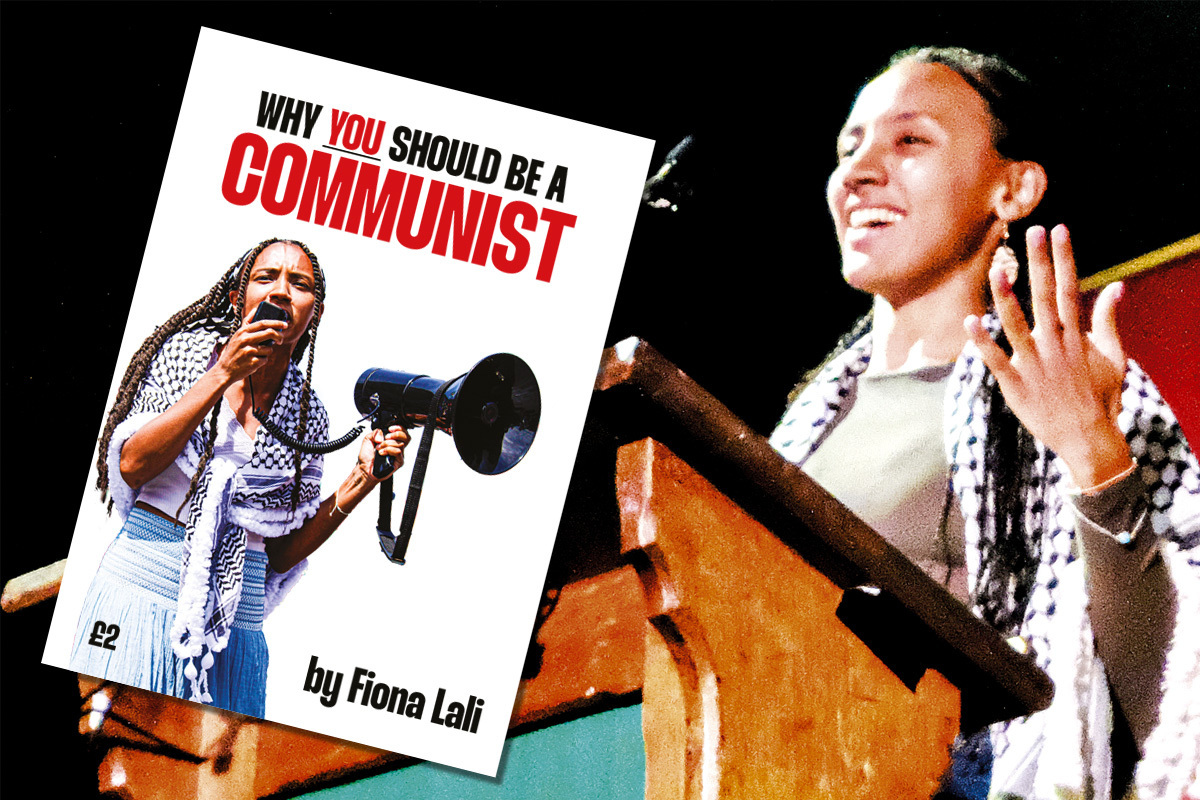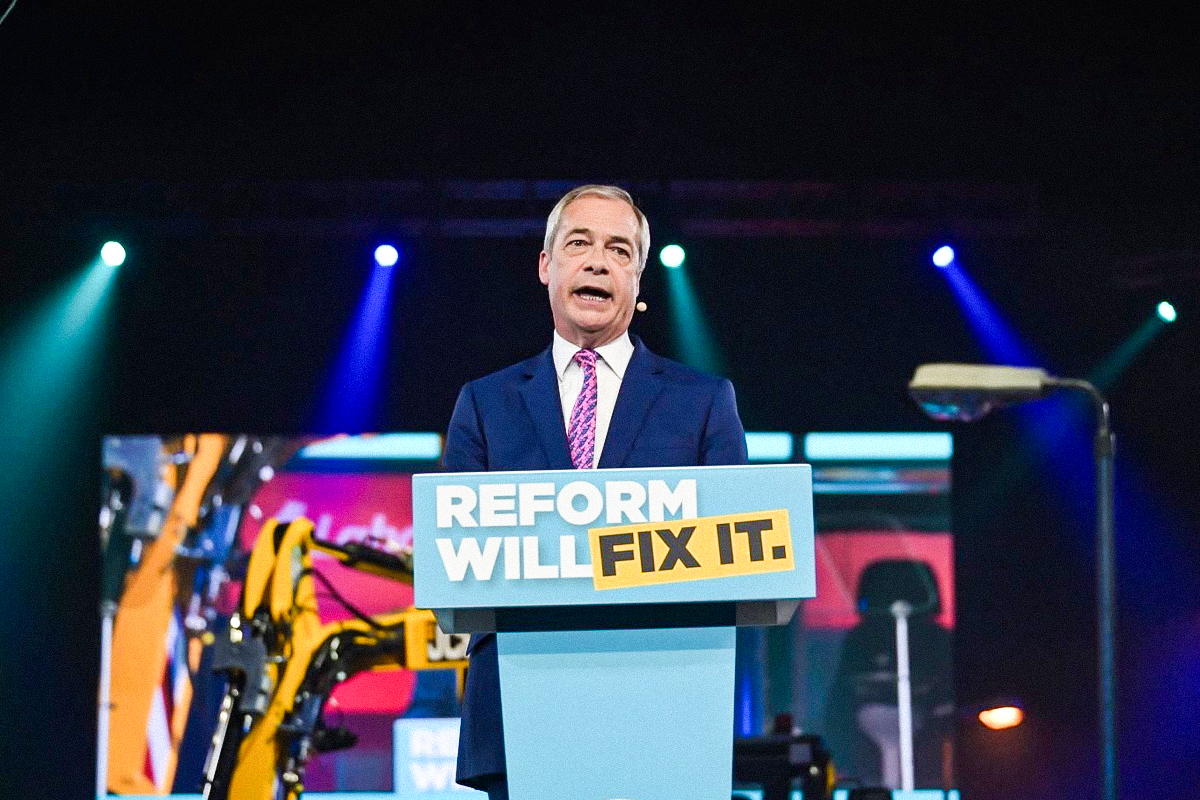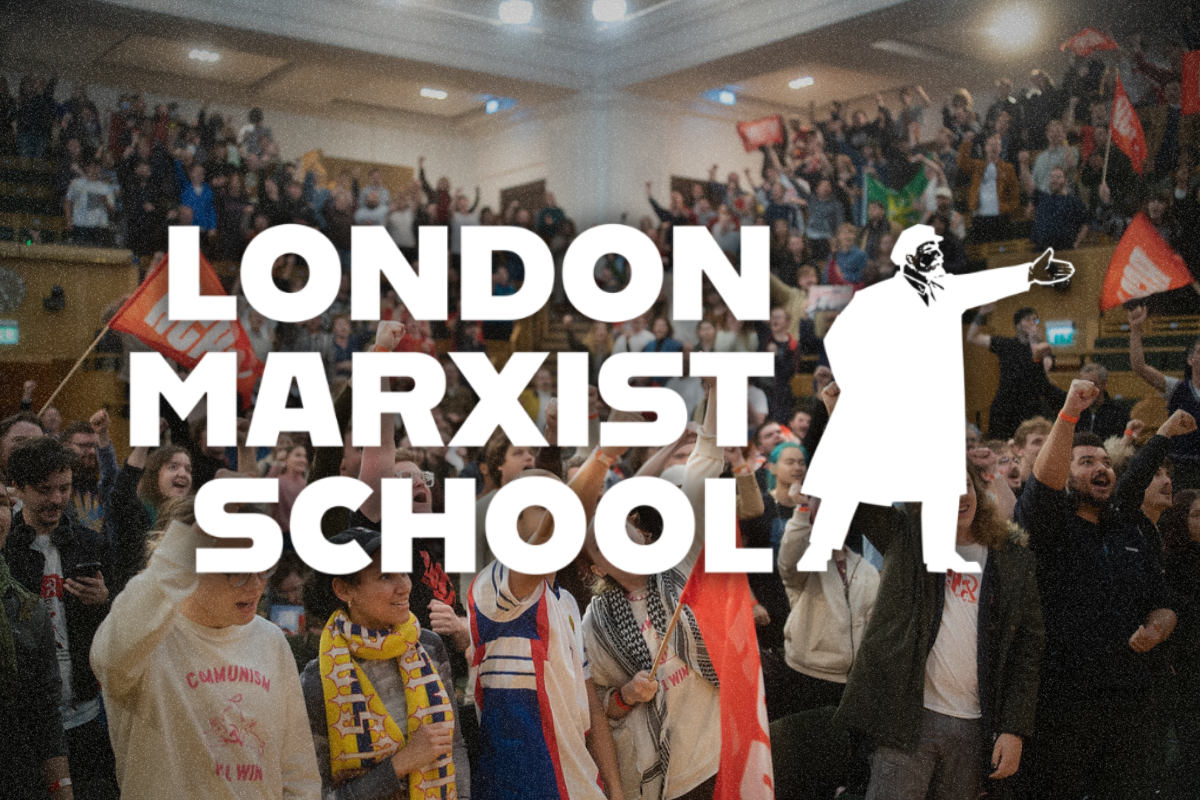Why should we be communists?
I wrote this pamphlet because I think there are a lot of people out there in society that are absolutely furious with what they can see in front of them. That applies to the genocide in Palestine, but it also applies to their own lives.
If you live here in Britain, for example, people can see that things are deteriorating from the climate question, but also the job market, housing…
Lots of people are angry, and they can point to the rich as being responsible for a lot of these problems, but I think it’s time for people to move beyond just a moral anger at the system and try to seek a deeper understanding.
And that’s why I think people should become communists, because communism, in the first instance, is all about understanding why the world is the way that it is, and that’s what we try to educate people on in the RCP.
Why launch this pamphlet now?
Well, we’ve just had an amazing Second Congress of the RCP, which was a huge success!
But more importantly than that, all of our experience as a party over the last couple of years has shown that there is a growing layer of young people who are looking for the most radical ideas.
We can see that in the recent student union elections, where we’ve run communist candidates, and they’ve received up to 1,000 votes in Cardiff and around 10 percent in all the other places. That is extremely significant, and that is because of the objective conditions of the world around us.
We see this layer of young people looking towards communism, we see that confirmed in our day to day work, and so we want to reach them quicker because we want to build a party.
What other reading would you recommend?
Oh, I would recommend the Communist Manifesto, which is the foundational document for the whole communist movement.
The ideas of communism and the communist movement have been around for a long time. It started with Marx and Engels and what they were able to do was provide an actual scientific, theoretical explanation for how capitalism works, its inner contradictions, and why communism would solve those contradictions.
And so really, for those who want to begin their political journey after reading this pamphlet, the first thing you’ve got to do is get to grips with the theory and the best place to start is the Communist Manifesto.
What do you want people to take away from this pamphlet?
I’d say, obviously this pamphlet’s only an introduction. It’s quite short, it’s bitesize, but that’s important. The idea is that it serves as a grounding for further study and further commitment.
Being a communist is about more than just reading a pamphlet or reading a book. It’s actually about committing yourselves to the struggle for socialism and communism. And that is an active thing that requires a combination of studying theory and being active in the movement.
And so I’m hoping that this pamphlet serves as a springboard for people to take that next step and to realise that they can and should play a role in the building of a revolutionary communist party.
Buy your copy of ‘Why YOU should be a Communist’ here at wellredbooks.co.uk
Extract from ‘Why You Should be a Communist’
The world today is defined by war, economic crisis, inequality, climate catastrophe, and oppression. None of this is necessary, inevitable, or natural. It is the lashing out of a dying social system.
Globally, the richest 1 percent own 47.5 percent of the world’s wealth. This inequality is larger than ever before, and is projected to grow. In fact, it is growing exactly as Karl Marx predicted more than 150 years ago:
“Accumulation of wealth at one pole is at the same time accumulation of misery, agony of toil, slavery, ignorance, brutality, mental degradation, at the opposite pole.”
We are living through a transformative period in world history. In turn, the consciousness of millions of people is also being transformed by the hammer blow of events; by the conflicts, chaos, and crises around us.
This is, for the ruling class, an extremely dangerous thing – because people are starting to ask: “why is this happening?”
Horror without end
Vladimir Lenin once described capitalism as “horror without end”.
This description is emblazoned on the sky: in Palestine; in the suffering of children all over the world plagued by disease, starvation, and conflict; in the scorching of the Earth from wildfires, or the flooded streets of Bangladesh.
It is revealed in the overworked, underpaid, stressed-out hands of those struggling to keep the NHS running; in the soaring rates of mental health issues; in the devastating rise of alienation, isolation, and loneliness; in the rise in interpersonal violence, femicides, and more.
Millions of people are repulsed by what they see. Hatred and anger toward the establishment has quickly become the defining mood within the working class, and especially the youth.
Capitalism is not based on morals, or a fixed set of ideas. It is a mode of exploitation that has a real material base.
Revolutions brought the bourgeoisie to power. That power rests upon the capitalists’ ownership of the economy, and the political institutions created to defend the rule of their class.
Moralistic appeals to capitalist politicians to be ‘good’ are therefore doomed to failure.
To seriously strive to change the world, it is necessary to seek a scientific understanding of the laws that govern the capitalist system.
To be a communist is to embark on this revolutionary journey.
This was, ultimately, the greatest achievement of Karl Marx: the philosophical founder of scientific socialism.
We start by analysing the material conditions that exist on a global scale, and make our way forward on that basis: attempting to identify the root cause of our problems, and building a force that can transform society.
Them and us
Britain – once ‘the workshop of the world’ – has become a dumping ground for the bigger capitalist powers. The City of London, considered a financial capital, is simply a holding pen for the ill-gotten gains of other speculators.
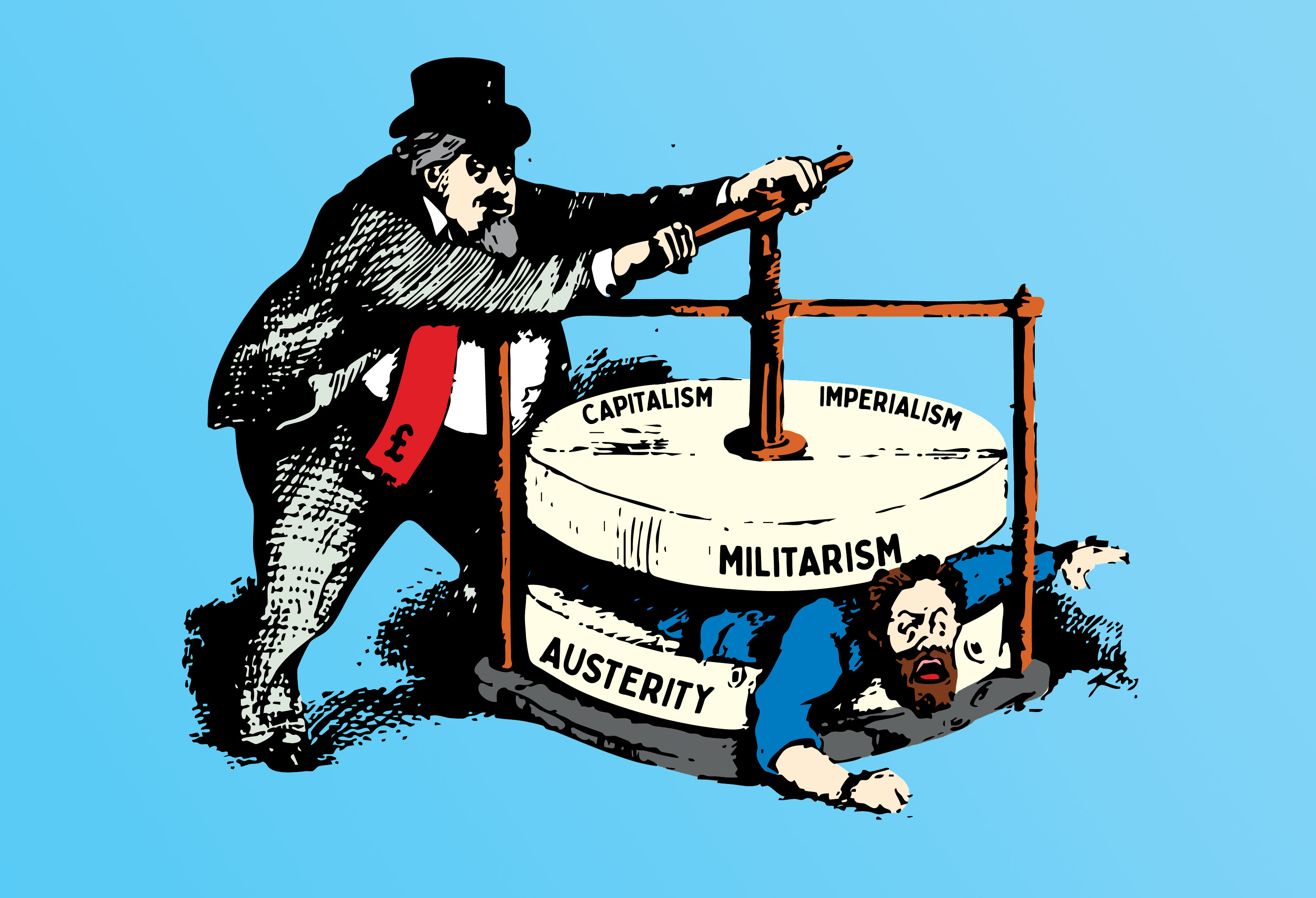
These parasites cream off interest from the rest of the global economy. And they have plenty to feed off. The collective wealth of UK billionaires, many linked to the City, increased by £35 million per day to a total of £182 billion in 2024, according to an Oxfam report.
Worldwide, there are more billionaires than ever before, with 2,781 people with fortunes exceeding $1 billion. It would take 16,000 years to earn $1 billion on the average salary.
The total wealth of these billionaires has now increased to £11 trillion, up by £1.5 trillion from 2023. The planet’s 20 richest people alone increased their net worth by £540 billion.
Most of the super-rich get their money from inheritance, property, insurance, banking, and financial services. Very few, if any, actually make anything useful.
Of course, as the rich get richer, the poor get poorer. While the capitalist class has seen their wealth advance enormously, the working class has been battered.
Margaret Thatcher carried out a counter-revolution against our class: destroying jobs, cutting wages, undermining terms and conditions, and increasing exploitation.
Thatcher’s government waged a class war against working people, where the gains of the postwar period – which were an exception to the rule of capitalist misery – were eroded or destroyed.
Crisis of capitalism
Francis Fukuyama famously declared that we had reached ‘the end of history’. What he meant was that liberal democracy was now ‘proven’ to be the only system possible, the struggle to change society was now over.
The restoration of capitalism in Russia and Eastern Europe – which brought about one of the worst humanitarian catastrophes in human history – and the opening up of China to the world market, gave a massive boost to the global economy.

‘Globalisation’ – a greater integration and expansion of the world market – gave capitalism a new lease of life. This, together with the expansion of credit, helped to keep the system going.
Liberal free trade was the order of the day. Poverty was seen as an issue confined to the ‘third world’. Culturally, the ruling class proclaimed that ‘we are all middle class’ now, and even that ‘there is no such thing as society’.
This period didn’t last. The massive expansion of credit and the spread of subprime mortgages were laying the basis for an almighty crash later on. As long as the capitalists were making profits, however, nobody at the top cared!
Eventually, however, all the chickens came home to roost.
The result was the economic crisis of 2008 – the consequences of which are still being felt today.
The crisis confirmed what Karl Marx explained over 150 years ago. The capitalist system, given its contradictions, would eventually reach its limits. This, in turn, would open up an era of revolution.
From revolution to impasse
Capitalism is a system based on the exploitation of wage labour.
From a historical point of view, the system was progressive in terms of developing the productive forces – science, industry, and technology – and creating an integrated world economy.
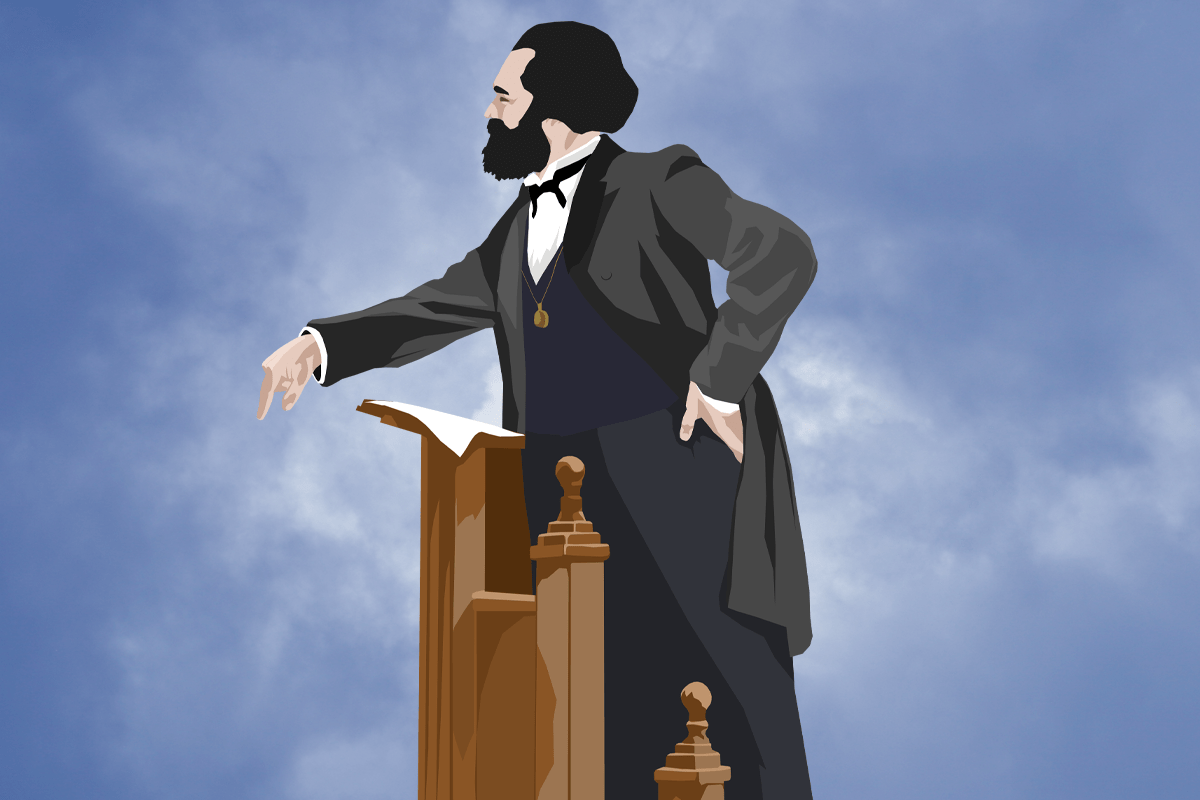
But capitalism is an inherently crisis-ridden and anarchic system. It has developed the productive forces to a level that it cannot contain. It can no longer fully utilise the productive potential that it has created.
This leads to periodic overproduction: a phenomenon unknown in previous societies, based upon the contradiction between the social character of production and the private appropriation of the wealth created.
Consequently, the system has long since reached its limits and entered into decline.
The slump of 2008 was a turning point, from which the capitalist system has never recovered. This, in turn, has opened up a period of growing conflict, trade war, and economic nationalism.
‘Globalisation’ has come to an end. The system has exhausted itself. Protectionism is the dominant trend today – the same trend that led to the 1930s Great Depression.
As Marx explained, the key to the development of society is the development of the productive forces. However, when a social system is no longer able to develop these forces, it enters into crisis and prepares the way for social revolution.
This is precisely the situation that is happening today, as the productive forces on a world scale stagnate.
Exploitation and inequality
Human beings evolved through labour and social organisation. As distinct to other animals, labour played the essential role in making us human.
As social beings, our ancestors banded together, acquired an ability to make tools, and developed language. This enabled early humans to develop the power of abstract thought – of thinking about something before doing it.
This was a revolutionary turning-point in the development of our species.
Our ancestors – millions of years ago – developed a nomadic life based upon cooperation, not competition, as contemporary bourgeois economists would have us think.
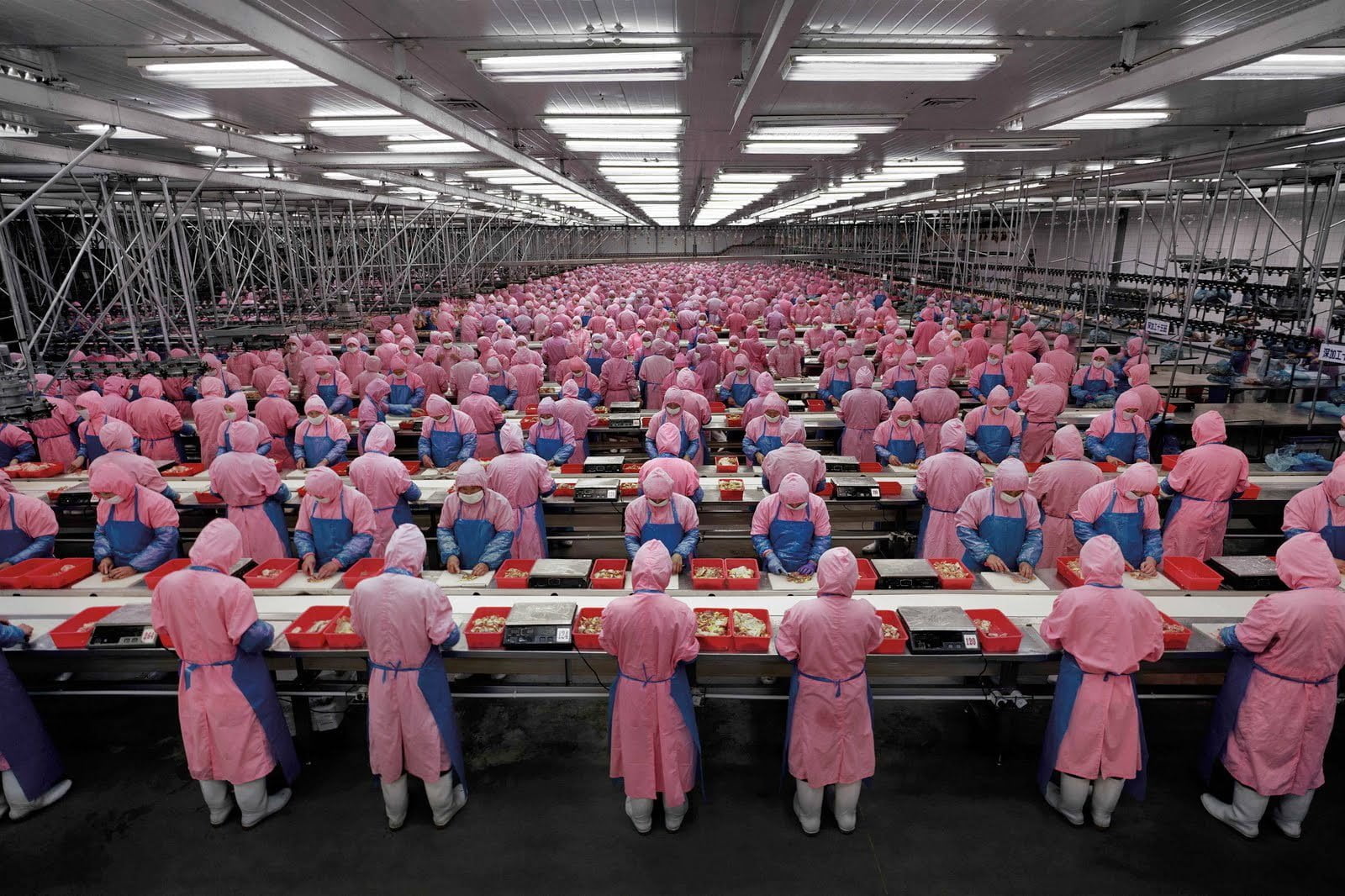
There was no private property, money, police, or state in early human societies. We lived and survived on the basis of collective social organisation, known as ‘primitive communism’.
At a certain stage (about 10,000 years ago), the domestication of animals and plants allowed for the production of a surplus. This meant that some could live off the work of others.
This was the beginning of class society; the beginning of civilisation, but also the beginning of a division of between the exploiters and the exploited.
Class society took different forms: slave-based societies, feudalism, and now capitalism.
In the final analysis, the most important determining factor for how society is organised is its economic base and its property relations.
The central class antagonism in capitalist society is that between wage labour and capital. The working class, who do not own the means of production, are forced to work for the capitalists, who do.
The working class produces all the wealth in society, in the form of commodities – goods and services sold on the market. But it is the capitalists, as owners, who appropriate the surplus value produced by the labour of the working class, in the form of profits, rents, and interest.
This contradiction inherently produces inequality. The only way to end this chasm between the haves and have-nots, therefore, is to deal with the question of ownership.
Capitalism has brought society to an impasse. The productive forces have outgrown the confines of private property and the nation state.
Capitalism has brought into being huge productive potential. But given the diktats of private profit and the anarchy of the market, it cannot utilise this.
We have massive high-tech factories and modern large-scale farming, which are already capable of providing a decent standard of living for every person on the planet. But under capitalism, 25,000 people die every day due to hunger.
We have industry, science, and technology that could create a paradise on Earth. But these resources are in the hands of a tiny minority of capitalists, bankers, and landlords, whose only interest is the never-ending accumulation of personal wealth, not the fulfillment of society’s needs.
Reform or revolution?
77 percent of people in Britain would rather the government increase taxes on the very richest to improve public finances than see cuts to public spending. 78 percent support introducing a 2 percent wealth tax on net assets worth more than £10 million.
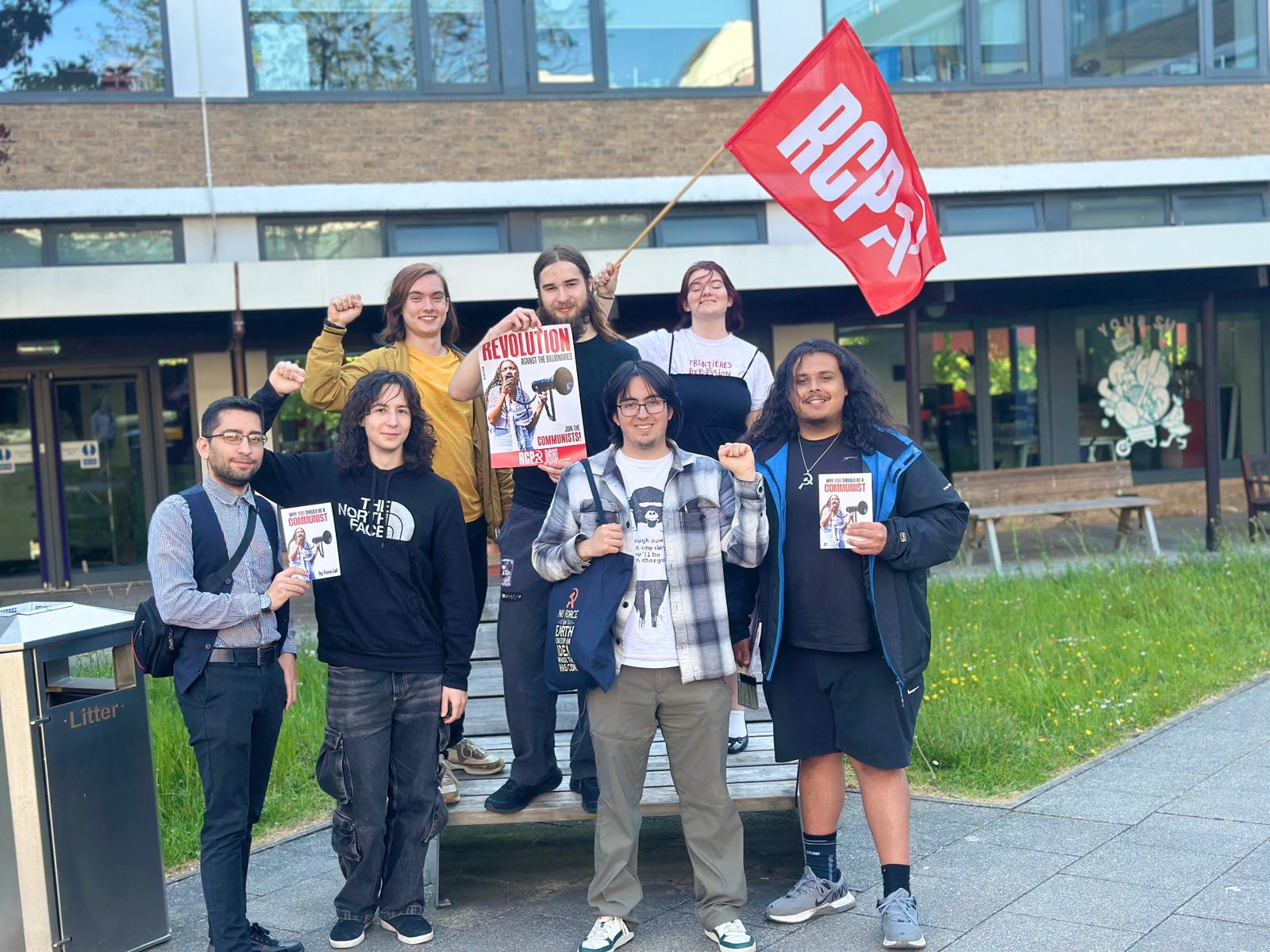
Unfortunately, however, a wealth tax has been tried in different countries over the years, such as in France, and has not produced the desired results.
As communists, we support any measures that reduce the wealth of the rich and benefit the working class. But experience shows that the rich and powerful will fiercely resist any such measures.
Whenever governments try to tax the rich, they respond immediately by squirrelling away their wealth into offshore accounts and shell companies, etc.
In other words, any serious attempt to tax the rich would be met with a flight of capital.
Communists argue instead for the expropriation of the rich – not to simply tax the rich, but to seize their wealth.
Our aim is not to tinker with capitalism, but to do away with it altogether.
Through the expropriation of the means of production, we would be able to use the wealth in society – produced by the working class, but hoarded by the capitalists – to produce on the basis of the needs of the majority.
Of course, we would support any reform that improves the conditions of the working class. However, we always maintain a focus on removing the source of the problem itself.
Myths, lies, and slanders
We are told that communism is where everyone gets paid the same, wears the same clothes, and is told what to think. Such a system, it is asserted, will always end up in some kind of dictatorship.
A whole cottage industry has been created, with the sole purpose of discrediting the communist movement, including the achievements of historic and heroic struggles like the Russian Revolution.
For us, the Russian Revolution of October 1917 – led by Lenin and Trotsky – was the greatest event in human history. For the first time, the masses took their destiny into their own hands, cleared out the landlords and capitalists, and placed the working class in power.
The October Revolution showed that the capitalist system could be overthrown, not just in theory, but in practice.
Unfortunately, due to the betrayal of the revolutions in other countries, the Russian Revolution was isolated.
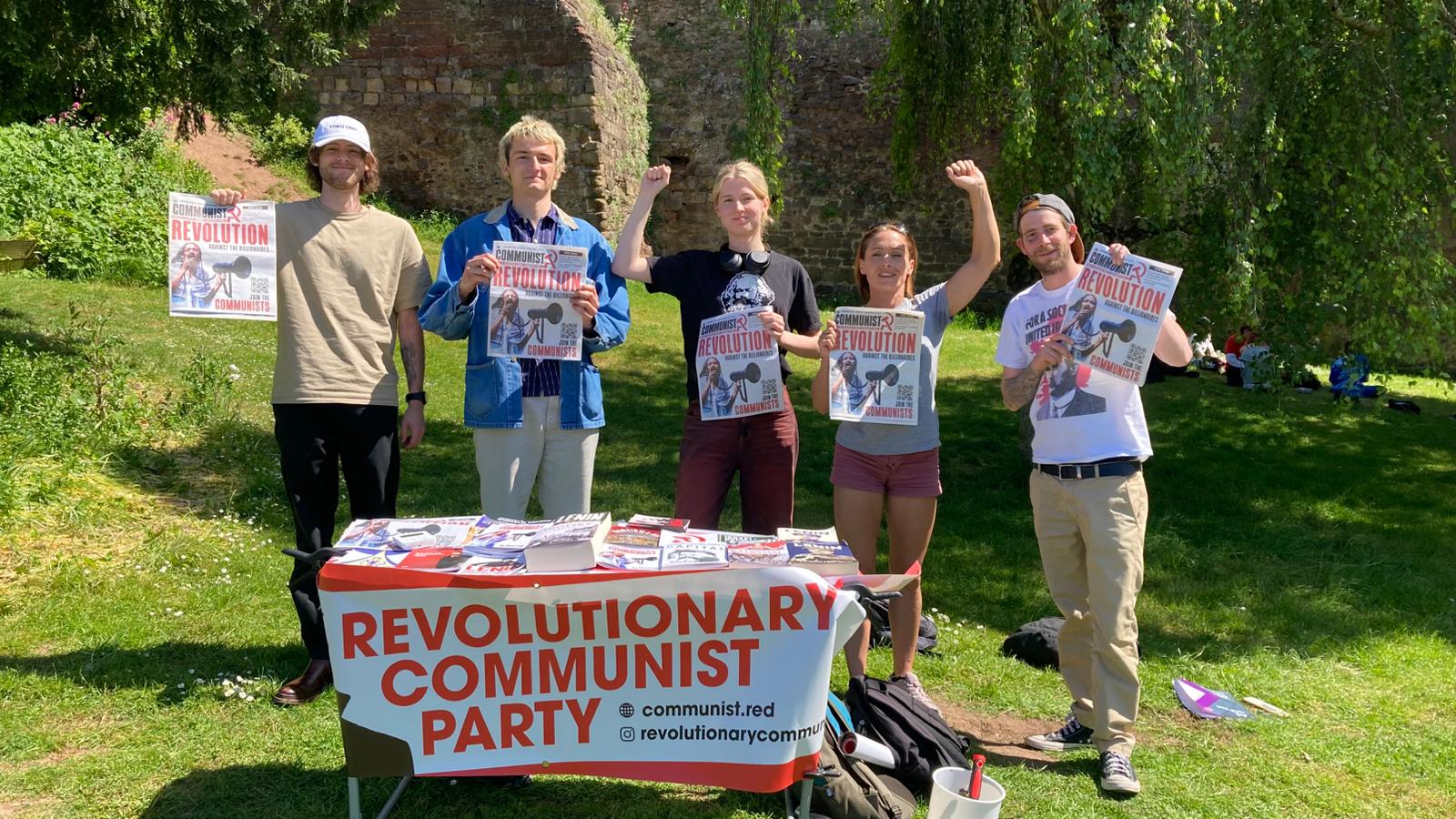
As a result of its extreme economic backwardness and isolation, there was a rise of a bureaucracy. What was originally a workers’ democracy, based on the soviets (local councils of workers, soldiers, and peasants), turned into bureaucratic dictatorship with Stalin at its head.
As the economy grew and became more sophisticated, this bureaucratic rule increasingly became a fetter, stifling the benefits and advantages of economic planning.
What we saw in 1989-91, therefore, was not the collapse of communism, but the collapse of Stalinism.
Nevertheless, despite the distortions of Stalinism, the nationalised planned economy gave a glimpse of the potential that could be achieved on the basis of socialist planning, if there was workers’ democracy.
In the 50 years from 1913 (the highest point of the Russian pre-revolutionary economy) to 1963 – despite the destruction and devastation of two bloody world wars, a war against foreign intervention, a civil war, two massive famines, and the burden of bureaucratic mismanagement – total industrial output rose more than 52 times.
The corresponding figure for the USA is less than six times, while Britain just about managed to double her output in this period.
Similarly, while Britain’s industrial productivity rose by 73 percent in this time, and America by 332 percent, productivity in the USSR grew by 1,310 percent.
The Soviet Union produced more scientists, technicians, and engineers than the rest of the world put together. Per person, four times as much was spent on education in Russia than in Britain. The Soviet space programme was far in advance of America’s.
There was no unemployment or inflation in the USSR. Rents were extremely low, and included energy and phone services. Workers retired at 55 years. And there was no discrimination in pay or terms of employment between men and women.
All this was a product of the nationalised planned economy, which allowed for huge strides to be taken. But this was eventually undermined by the suffocating rule of the bureaucracy, resulting in mismanagement, corruption, and waste on a colossal scale.
Need for a revolutionary party
The failure of the revolutions that followed the Russian Revolution highlighted the problem of revolutionary leadership.
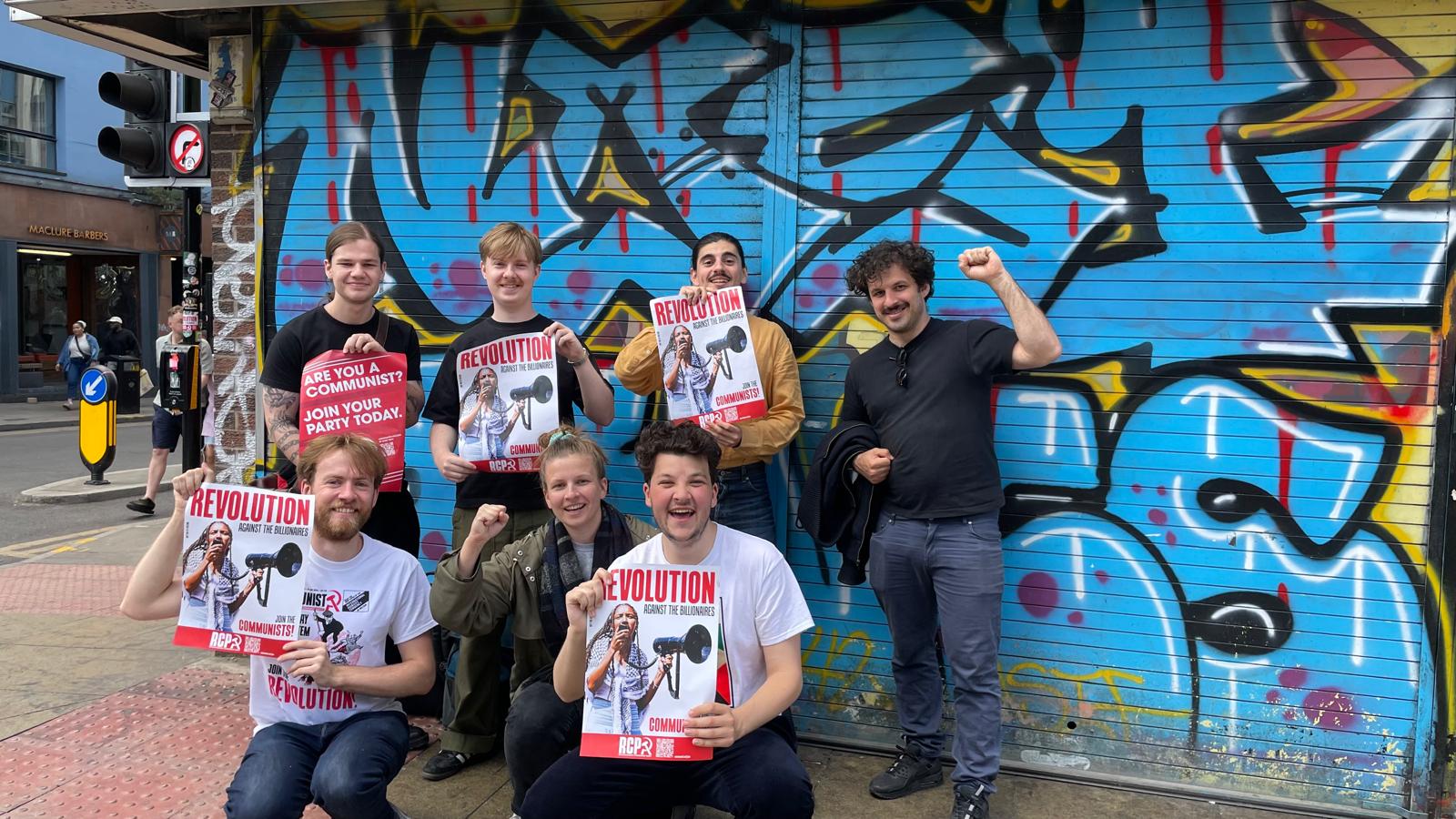
All history has shown that a revolutionary party cannot be improvised, but needs to be built in advance.
Such a party must be prepared to go all the way to change society. And it must be clear in its aims and ideas.
This means basing ourselves on the theory of Marxism, which provides an understanding of the laws and dynamics of capitalist society, thanks to its revolutionary philosophy.
What is required is a party of trained class fighters – cadres – who dedicate themselves to the study of the class struggle, its history, and the theory needed to liberate us.
The working class today is stronger than it’s ever been before. It is more numerous and educated, and has a far bigger social weight in society, particularly in countries like Britain.
In the not too distant future, Britain will be convulsed by revolutionary upheavals.
It is essential that we build a revolutionary party in advance of these titanic events. This is what we are doing. And we appeal to you to join us in this effort.
Communist future
A communist future is within our grasp. This will usher in a transformation in all aspects of life.
For the first time in history, science, technique, and industry will be used for the benefit of all. Unemployment will be abolished, and all those able to work will be employed productively in raising living standards to new heights.
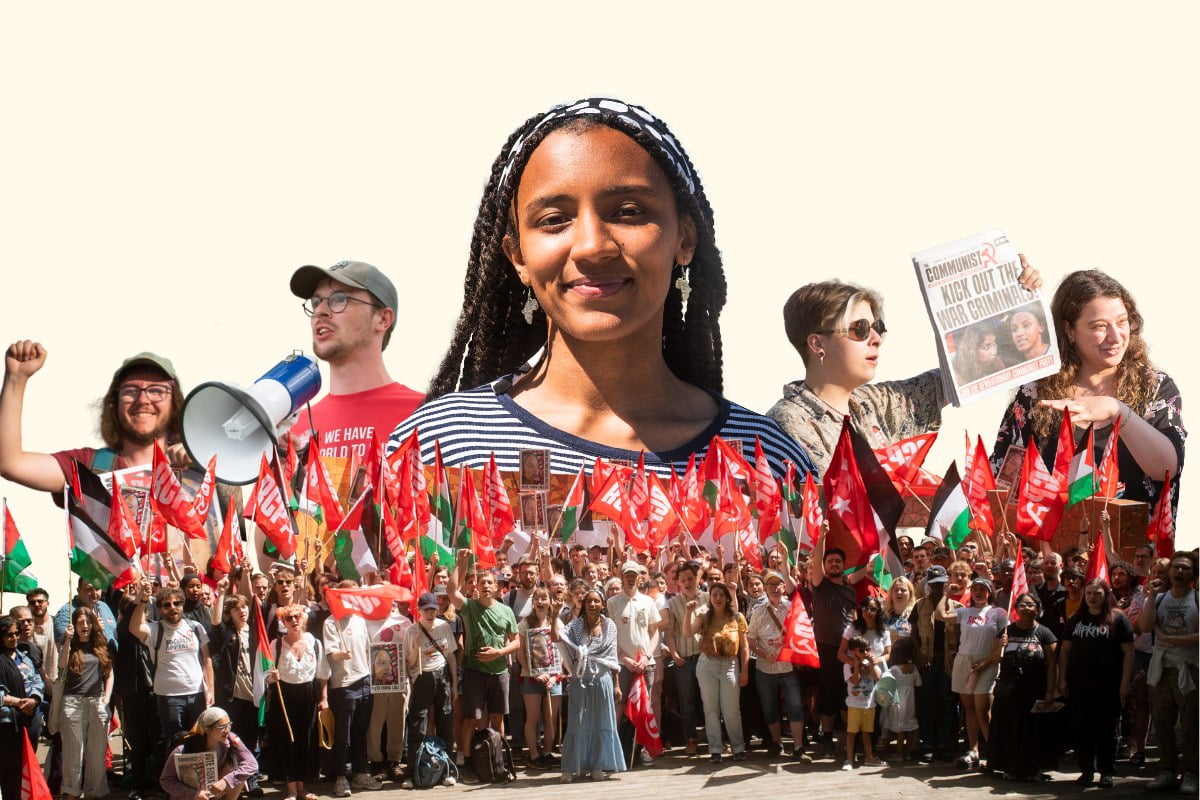
The working day will be dramatically cut, while wages rise, allowing people to be involved in the democratic running of society.
Workers’ control and management will be introduced, involving everyone in the democratic planning and running of the economy and of society.
Production will be based upon need, allowing us to safeguard the environment in harmony with the economy. All will have the time to develop their skills and talents to the full. Education will be free and open to everyone.
Society will transition to the communist principle: “From each according to their ability, to each according to their needs.”
For the first time, human relationships will develop free from exploitation, violence, and coercion of any kind.
The overthrow of capitalism in Britain will be the step to a Socialist United States of Europe, and to a world federation of socialist states.
This would mean the leap from the realm of necessity to the realm of genuine freedom, liberating humanity, and allowing art, science, and culture to flourish.
With our common endeavors, we can create a paradise on Earth, in which poverty, hunger, squalor, and war are eradicated.
This is a future worth fighting for! Join the communists in making it a reality!

